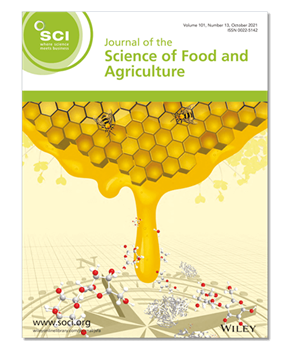JOURNAL HIGHLIGHTS BY RAQUEL ENCISO SERRADILLA
A new study has looked at the therapeutic potential of mucus derived from snails fed different concentrations of carob.
The research, published in the Journal of the Science of Food and Agriculture, suggests that snail mucus enriched with carob extract ‘could serve as an innovative approach for managing ulcerative colitis (UC) and other inflammatory disorders.’
Inflammatory bowel diseases, including UC, are chronic conditions affecting the gut, characterised by persistent inflammation and oxidative stress. Finding novel therapeutic approaches is crucial, as current treatments can cause significant side effects, including gastrointestinal ulcers, liver and kidney problems, and immunosuppression.
The focus of this study was on two elements: snail mucus, specifically from the Helix aspersa snail, and carob extract, from the Mediterranean Ceratonia siliqua tree.
Snail mucus is already recognised for its beneficial compounds such as allantoin, mucopolysaccharides, and antimicrobial peptides, known for their moisturising, anti-inflammatory, antioxidant, and regenerative properties, used in therapeutics and cosmetics. It is also known to stimulate collagen and elastin synthesis, supporting wound healing, the researchers note.
Meanwhile carob, particularly its pods and seeds, is rich in phytochemicals like polyphenols, flavonoids, tannins, and polysaccharides, which contribute to its antioxidant, anti-inflammatory, and tissue-protective effects.
Researchers used mucus from snails fed different concentrations of carob (10%, 20%, or 30%), with the aim of determining the optimal level. The study involved treating rats with acetic acid-induced UC using three different treatments: snail mucus, aqueous carob extract (AECS), or sulfasalazine, a standard medication commonly prescribed for this condition.
Through careful observation and analysis of the rats’ responses to the treatments, the researchers hoped to gather data on the efficacy of snail mucus and carob combination.
Results showed that pretreatment with mucus from snails fed carob-enriched diets (SSCS), AECS, or sulfasalazine significantly reduced colonic damage, compared with the untreated group. Of the carob-fed snails those fed a 30% carob-enriched diet (SSCS30%) demonstrated the strongest protective effects, notably reducing mucosal injury, inflammation, and immune activation.
‘These results demonstrate that both snail slime and carob extract effectively mitigate colonic damage caused by [acetic acid], with maximum efficacy achieved at 30% SSCS,’ the researchers said.
Biochemical analyses further supported these findings. SSCS30% effectively lowered inflammation markers (like CRP), pancreatic stress (amylase), and liver enzyme levels (AST, ALT, ALP), bringing them closer to levels in healthy controls. The treatments, especially SSCS at 30%, also enhanced antioxidant defenses by preserving the activity of key antioxidant enzymes (SOD, GPx, and CAT) and levels of sulfhydryl groups in the colon, while reducing markers of oxidative stress like lipid peroxidation (MDA) and hydrogen peroxide (H2O2). Moreover, SSCS30% helped preserve mucosal integrity and reduced inflammation and tissue damage in the colon.
The composition of snail mucus varied based on the carob in the snail’s diet; a 10% carob diet seemed to optimise protein and allantoin levels, while higher carob levels increased sugar but decreased protein and collagen. The inverse relationship between carob and collagen might actually improve mucus bioavailability, while increased sugars could aid mucosal adherence. The synergistic effect of the combination is thought to involve carob polyphenols reducing inflammation pathways and mucus components enhancing antioxidant defenses and restoring the gut barrier.
‘This study demonstrates that carob-enriched snail mucus exerts potent anti-UC effects’, the researchers said. However they said future steps need to include 90-day toxicity studies and phase I clinical trials to determine safe human dosing.
Challenges include ensuring consistent composition of snail mucus and carob extract (standardisation of extraction and production methods) and navigating regulatory approvals for invertebrate-derived therapeutics.
‘The integration of these bioactives into functional foods and nutraceuticals holds promise for improving gastrointestinal health, pending further translational research,’ the researchers said.
Synergistic healing: harnessing snail mucus enriched with carob extract for anti-inflammatory and antioxidant therapy in ulcerative colitis
Khaoula Gharbi, Slimen Selmi, Soumaya Wahabi, Ala Ayari, Karima Tlili, Stefano D’allacquac and Hichem Sebaia
Journal of the Science of Food and Agriculture
doi 10.1002/jsfa.14305






